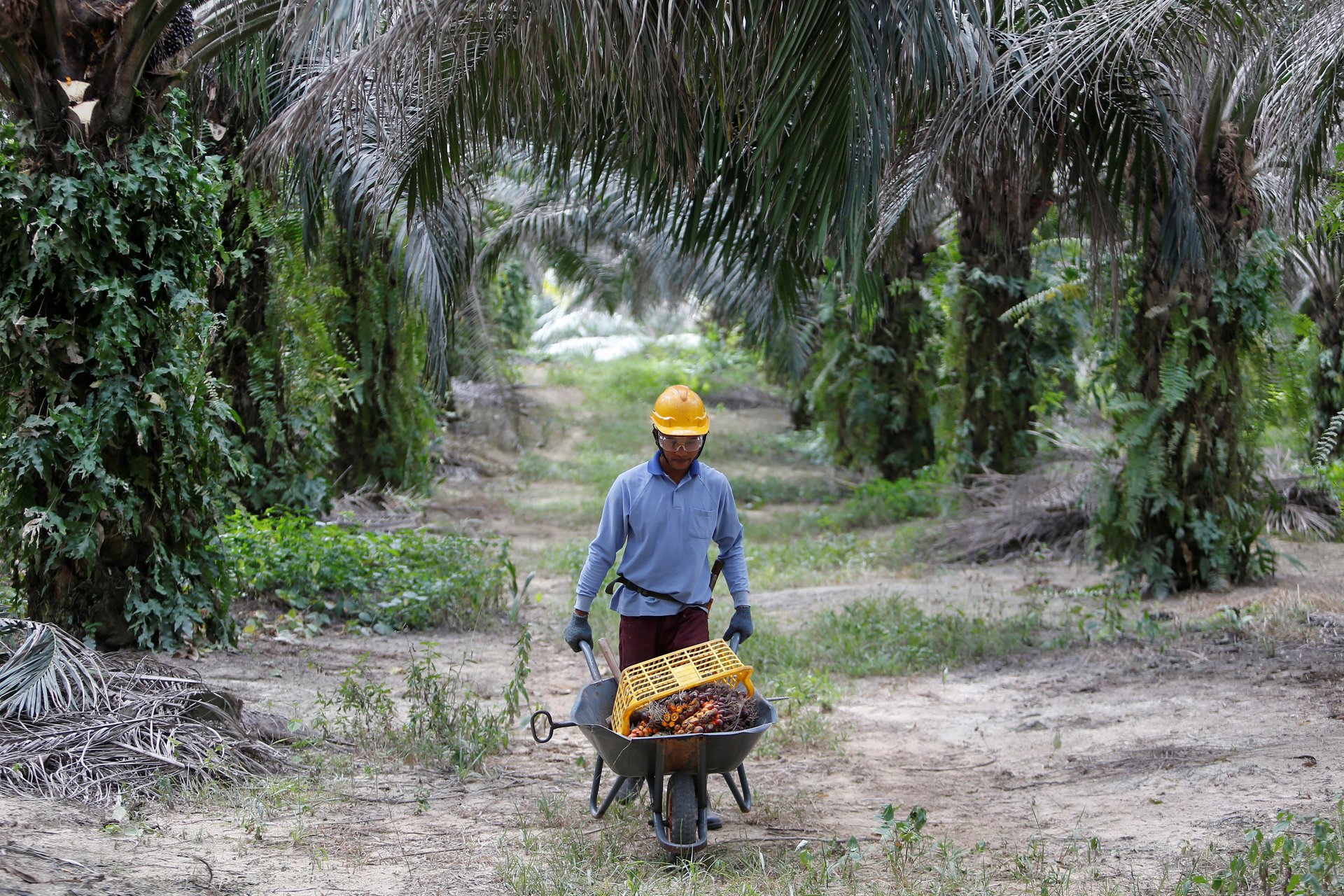India’s beginning a China-style boycott over Kashmir remarks
India isn’t happy with Malaysia.


India isn’t happy with Malaysia.
At the UN General Assembly last month, Malaysian prime minister Mahathir Mohamad said India had “invaded and occupied” Kashmir, a disputed Muslim-majority region also claimed by Pakistan and whose special autonomous status was stripped by India in a drastic and controversial move in August. Communications in the region, especially the internet, are still disrupted.
Now, in retaliation against Mahathir’s remarks, a prominent group of Indian traders has called for a boycott of Malaysian palm oil, for which India is the third-biggest market.
The move is very much like China’s signature efforts of severing ties with businesses that fail to toe its ideological line, such as the NBA. It’s also not the first time India has called for a boycott over the issue of Kashmir. In August, there were calls for Indians to shun Chinese products and to slap huge tariffs on China after Beijing sided with Pakistan on Kashmir. And in March, there were similar demands for a China boycott after Beijing refused to put a Pakistani militant leader on a UN terrorist list following a suicide bomb attack on a security convoy in Kashmir. If the boycott does materialize, it would be yet another regional trade spat between Asian nations, following Japan and South Korea’s dispute earlier this year.
Palm oil plays a large role in Malaysia’s economy. It’s the country’s biggest agricultural export, and Malaysian palm oil accounts for 28% of total global production. Last year, the Malaysian government even launched a global public relations charm offensive to safeguard palm oil’s reputation, amid growing recognition of the product’s harmful environmental impact. While environmentalists call for a ban on products that use palm oil, Malaysia has gone in the other direction: its top supermarket chain recently banned all products labeled palm oil-free from its shelves, echoing a similar move by fellow palm oil heavyweight Indonesia.
So far, the Indian government has not made public statements about the boycott proposed by the Solvent Extractors’ Association, though New Dehli has expressed disapproval about Mahathir’s comments at the UN. Mahathir, for his part, has stood by his remarks. Turkey, though, has seen a more official reprimand: prime minister Narendra Modi canceled a scheduled trip to Ankara and India issued a travel advisory that warned Indian travelers to “exercise extreme caution” in traveling to Turkey, after Turkish president Recep Tayyip Erdoğan criticized India’s Kashmir move.
The boycott of Malaysian palm oil doesn’t appear to have unanimous support in India, however. On Wednesday (Oct. 23), a political body in south India urged the government not to cut imports from Malaysia, arguing that many migrant workers from the southern Tamil Nadu state currently employed in Malaysia would be hit hard by any reduction in palm oil purchases.
Malaysia is now working to smooth out the trade spat with India, in the hopes that the strained ties won’t derail plans for a 16-nation trade deal among Southeast Asian and Asia-Pacific countries.